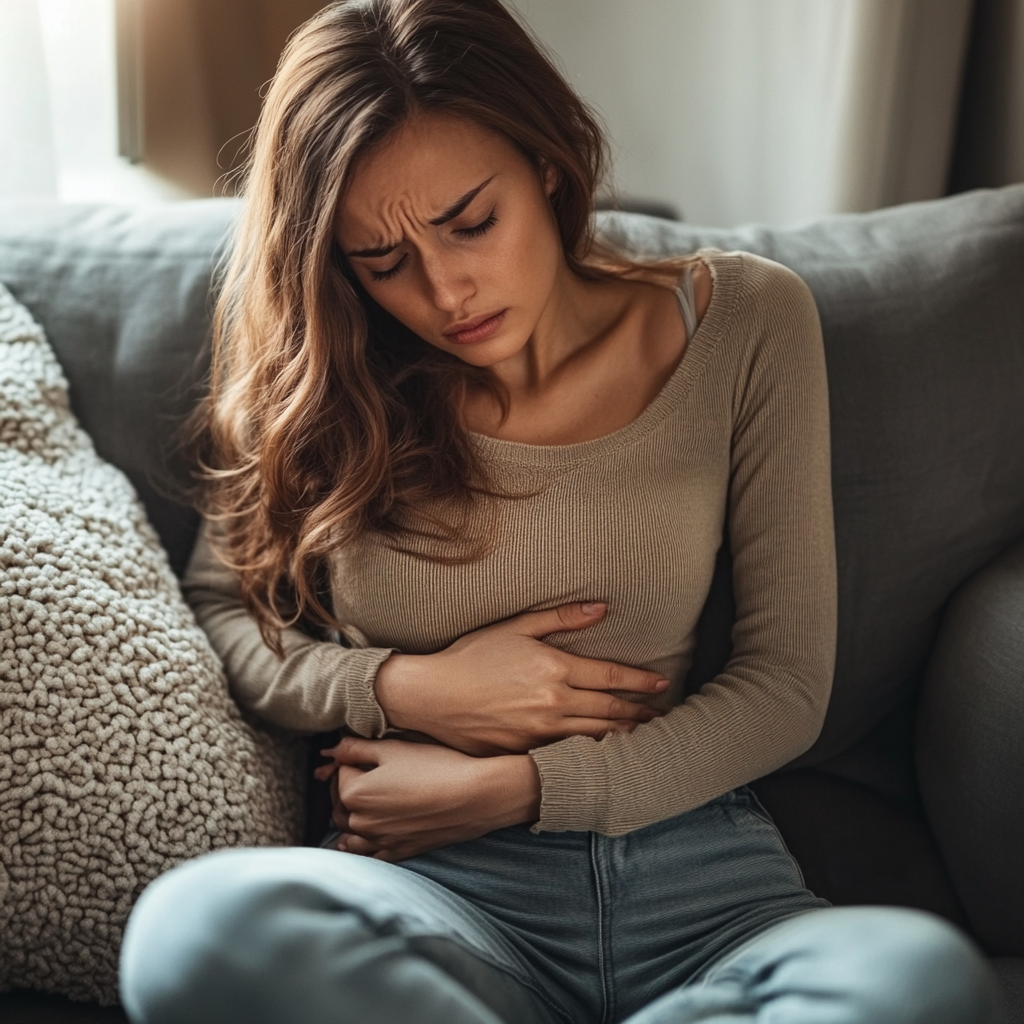Periods. They bring us cramps, bloating, mood swings, and, oh joy, diarrhea. Yes, we’re talking about the not-so-glamorous bathroom marathons many of us endure during that time of the month. If you’re wondering why Mother Nature throws this lovely curveball on top of everything else, you’re not alone. Grab your heating pad, settle in, and let’s break this down.
The Culprit: Prostaglandins, The Overachievers
The real villains here are prostaglandins. These are hormone-like chemicals that your body produces to help the uterus contract and shed its lining. (Yay, biology!) But prostaglandins are overachievers, and they don’t just stick to the uterus. They can spread to the nearby gastrointestinal (GI) tract, causing the intestines to also contract.
The result? Your intestines get overly enthusiastic about “cleaning house,” leading to diarrhea. Thanks a lot, prostaglandins.
Hormones and the Digestive Drama
Periods also bring hormonal chaos. Specifically, progesterone levels drop just before your period, which can make your GI tract more sensitive and unpredictable. Combine that with prostaglandins, and you’ve got a recipe for digestive drama.
Blame the Cravings (Maybe)
Your sudden desire to devour a bag of chips or an entire pint of ice cream might not help either. Fatty, sugary, or spicy foods can irritate the stomach, which may amplify your bathroom trips. It’s like a double whammy: the cravings hit, and so do the consequences.
Is It Just Me?
Nope! Period-related diarrhea is extremely common. According to a study in the International Journal of Women’s Health, gastrointestinal symptoms during menstruation, including diarrhea, affect a significant percentage of women. It’s your body’s not-so-subtle reminder that it’s doing a lot behind the scenes.
When to Worry
While period diarrhea is normal, it shouldn’t be debilitating. If you’re experiencing severe symptoms, or if the diarrhea is consistent and disrupts your life, it could be linked to other conditions like:
- Endometriosis: This condition often brings GI issues during menstruation.
- Irritable Bowel Syndrome (IBS): Hormonal shifts can worsen IBS symptoms.
- Food Intolerances: Some foods might trigger a stronger reaction during your period.
If you’re unsure or have concerns, it’s always a good idea to chat with your doctor.
How to Manage the Situation
Here are some tips to keep things under control:
- Eat a Balanced Diet: Stick to fiber-rich foods, avoid greasy snacks, and drink plenty of water.
- Try Probiotic foods:
Probiotics, found in supplements or fermented foods like yogurt, kimchi, or kefir, can help balance your gut bacteria. A healthy gut may reduce the intensity of GI symptoms during your period. - Incorporate Chamomile or Ginger Tea:
These herbal teas have soothing properties that can calm the stomach and reduce inflammation. Ginger, in particular, can help with nausea and bloating, while chamomile relaxes intestinal muscles. - Stay Active: Light exercise can help ease cramps and regulate digestion.
- Mind the Caffeine: Coffee and tea can stimulate your GI tract, so moderation is key.
- Over-the-Counter Help: Anti-diarrheal medications may help if symptoms are severe, but consult your doctor before use.
- Track Your Symptoms:
Use a period tracker app (like ours!) to monitor when GI symptoms occur. Identifying patterns can help you prepare better by adjusting your diet or activities during that phase of your cycle.
In Conclusion
While period diarrhea isn’t exactly anyone’s favorite topic, it’s a completely normal (albeit annoying) part of the menstrual experience. Understanding the role of prostaglandins, hormones, and diet can help you manage the chaos. And remember, if your symptoms are severe or unusual, don’t hesitate to see a healthcare provider.
Sources
- International Journal of Women’s Health: Study on Menstrual GI Symptoms
- American College of Obstetricians and Gynecologists: Digestive Symptoms and Menstruation
- Women’s Health Magazine: Prostaglandins and Period Symptoms
Medical Disclaimer
This article is for informational purposes only and not a substitute for professional medical advice, diagnosis, or treatment. Always seek the advice of your physician or other qualified healthcare provider with any questions you may have regarding a medical condition.

